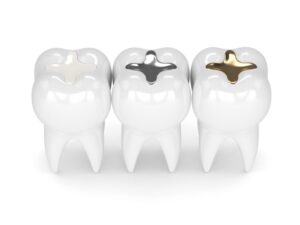
Dental fillings are one of the most common treatments for repairing cavities and restoring teeth. If you’ve recently had a filling or are considering getting one, you might wonder: how long will it last? The truth is, the lifespan of a dental filling depends on several factors, including the material used, your oral hygiene habits, and even your daily lifestyle choices. Let’s take a closer look at what you can expect.
Average Lifespan of Different Types of Fillings
Fillings aren’t one-size-fits-all. Dentists use different materials depending on the size and location of the cavity, your preferences, and budget. Each material has its own expected lifespan:
- Amalgam (silver) fillings: Durable and strong, these can last 10 to 15 years or more with proper care.
- Composite (tooth-colored) fillings: Popular for their natural look, composites typically last 5 to 10 years, though advancements in materials are improving their longevity.
- Gold fillings: Known for their exceptional durability, gold fillings can last 15 to 30 years, though they are less common today.
- Ceramic fillings (porcelain): Aesthetic and strong, ceramic fillings often last 10 to 15 years.
These are averages—some fillings may last much longer, while others might need replacement sooner.
Factors That Affect Filling Longevity
The lifespan of your filling doesn’t only depend on the material. Other factors play a role:
- Oral hygiene: Brushing twice daily, flossing, and attending regular dental cleanings prevent decay around the filling.
- Diet: Frequent sugary snacks and acidic drinks can wear down fillings and weaken tooth enamel.
- Teeth grinding (bruxism): Chronic grinding or clenching puts pressure on fillings, causing them to chip or wear faster.
- Filling size and location: Larger fillings or those on back molars (where chewing force is strongest) tend to wear down quicker.
- Regular dental checkups: Dentists can spot early signs of filling wear or leaks before they become bigger problems.
Signs Your Filling May Need Replacement
Even the strongest filling won’t last forever. Watch for these warning signs:
- Tooth sensitivity to hot, cold, or sweet foods.
- Sharp pain when biting down.
- Visible cracks, chips, or wear on the filling.
- Rough edges you can feel with your tongue.
- Food frequently getting stuck in the tooth.
If you notice any of these issues, it’s important to see your dentist promptly. A damaged or leaking filling can allow bacteria to enter and cause new decay under the filling.
Making Your Fillings Last Longer
While you can’t make a filling last forever, you can extend its lifespan with good habits. Brush with fluoride toothpaste, floss daily, and avoid chewing hard objects like ice or pens. If you grind your teeth, your dentist may recommend a custom nightguard to protect your fillings and natural teeth.
On average, dental fillings last anywhere from 5 to 15 years, depending on the material and your oral care routine. With regular checkups and healthy habits, many patients enjoy decades of use from their fillings. If it’s been a while since your last dental visit, scheduling a checkup is the best way to ensure your fillings and your smile stay in top shape.
About the Practice
Do you need to restore one or more of your damaged teeth? At My Ellicott Hill Dentist, we’ve got you covered! We welcome patients of all ages for treatment. With 3 experienced dentists under one roof and modern technology and lifelike materials, you can rest easy knowing you’re getting the best care possible for your oral health. Don’t wait any longer to get your smile back. Schedule an appointment with us online or call (410) 480-2000.


